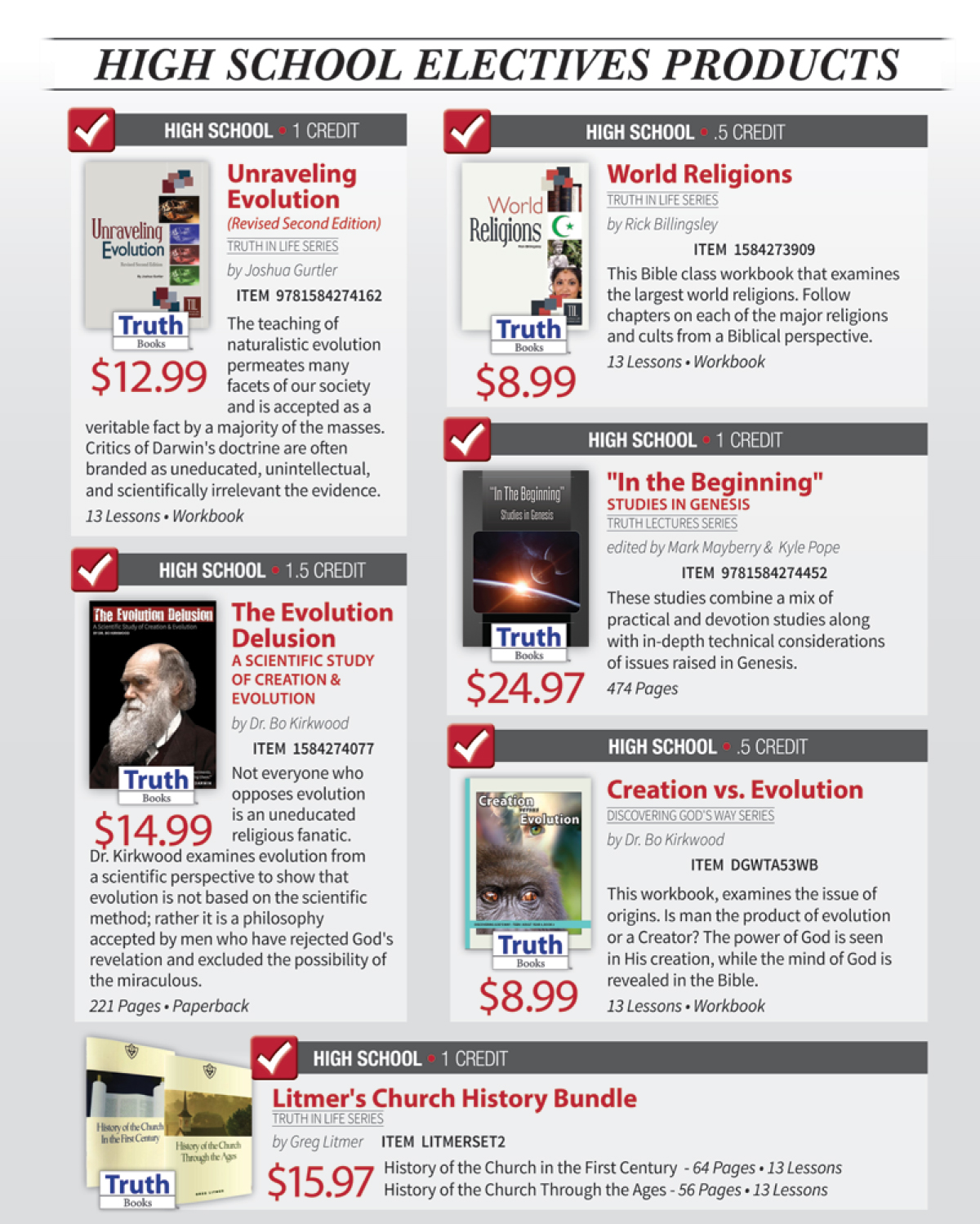

by David Flatt
Synopsis: While we may know the overall history of God’s people, we may not accurately discern its meaning. Paul clarifies a misreading of Israel’s history and demonstrates how God’s selection and reshaping of Israel were just.
Romans 8 is one of the most hopeful chapters in all of Scripture. Paul explains how we can experience a new life by the cross of Christ and the Spirit. By faith in what God accomplished through Jesus, we can be adopted into His family. If we are willing to suffer, God and the Spirit will sustain us. We can live and die in the hope of eternal life. Nothing can separate us from God’s love. Yet, there is more.
As hopeful as the gospel is, it also brings a sad reality to bear. While the gospel is for everyone, everyone will not obey it. Everyone can be saved by believing the gospel. Unfortunately, all do not have faith. In Romans chapters 9-11, Paul begins to grapple with this harsh reality. As surprising as it may be to us, God anticipated the rejection of His purposes. Yet, God was able to be faithful to His covenant, offering salvation to all, despite man’s rejection of Him.
The reception of the gospel was deeply personal for Paul. While this epistle is detailed, what he expresses is far more than a theological term paper. Paul knew the tragedy of Israel rejecting the gospel better than most. Initially, he thought Jesus was a heretic, and he persecuted His followers. While Paul’s life and hope were transformed through faith in Jesus Christ, his family’s continued rejection of the gospel caused him deep sorrow.
By God’s grace, Israel had been given great privileges. Israel was God’s chosen family. They had received the promises. They had been given God’s law. They rendered worship to God. They rejoiced in the hope of glory. The covenant of Abraham directly applied to them. Most of all, Christ came through Israel.
Despite their abundant privileges, Israel’s faithless rejection of the Redeemer left them without excuse. This was tragic. The Messiah belonged to Israel according to the flesh, but only in a fleshly sense. As long as physical Israel continued to reject Jesus Christ, they would remain related to Him in the flesh alone. More than being biologically connected, Israel needed to be related to Him spiritually. Spiritual kinship with Christ is achieved through faith.
Paul could relate to his family’s rejection of the Messiah. While pride played a part, there were other reasons for this sad outcome. A misreading of history could have, in part, led the rulers of Israel to crucify the Messiah. Hear Paul’s pronouncement in the synagogue at Antioch of Pisidia:
Brothers, sons of the family of Abraham, and those among you who fear God, to us has been sent the message of this salvation. For those who live in Jerusalem and their rulers, because they did not recognize him nor understand the utterances of the prophets, which are read every Sabbath, fulfilled them by condemning him. And though they found in him no guilt worthy of death, they asked Pilate to have him executed (Act 13:26-28).
The Old Testament records the history of God’s dealings with ancient Israel. Abridged versions appear in the Psalms. Jewish rabbis often retold the story. Beginning in chapter 9 and continuing through chapter 11, Paul performs this task. By retelling familiar stories, Paul describes what God had been doing through his family: Abraham, Isaac, and Jacob, even including Ishmael and Esau—focusing on facts that had often been overlooked and also misunderstood.
Paul affirms that the Scriptures, i.e., the history of God’s dealing with Israel, could not be wrong. The way their history unfolded, culminating in the cross of Jesus, was not accidental. Paul began the Roman epistle by stating that what God did through Jesus Christ was foreshadowed by the inspired prophets and the Sacred Scriptures (Rom. 1:1-4). The Messiah was not an amendment, or quick-fix, to a broken plan. Just as Paul’s prior assessment of Jesus had been wrong, Israel misunderstood God’s plan for human redemption that was executed through their family.
Paul begins with a point of agreement: God selected a family from among the human race through which to work. More to the point, however, God selected individuals within this family through whom to work. Israel knew that God chose Abraham. They knew that God chose Isaac over Ishmael and Jacob over Esau. What Israel had failed to see was that God’s selection continued far past Jacob and Esau.
God’s process of selection continued to the arrival of the Messiah. This is the central point of Paul’s argument, culminating in the declaration: “For Christ is the end of the law for righteousness to every one that believeth” (Rom. 10:4). God continues to choose some and not others—choosing those who believe and rejecting those who do not.
Another part of God’s selection process regarded human morality. He chose people who lacked moral perfection. He worked within the human family to deal with the problem of evil. He used people who were part of the problem until the time was right to send the Messiah. This point was addressed earlier regarding Abraham (Rom. 4).
Israel mistakenly viewed Abraham’s outstanding moral character as the basis on which God made a covenant with him. This is an inaccurate view of Abraham. Faith was the basis for God’s covenant with Abraham, not outstanding moral superiority on his part. Like all other men, Abraham was a sinner. God working through ungodly sinners to execute His plan is a recurring theme from Abraham to Paul’s day and from Paul’s day to ours.
In summary, as Paul explains the history of God’s relationship with Israel, he describes His selection process. God chose some and not others. While God’s promises would be carried out by the “seed of Abraham,” this did not mean every single child who was descended from the patriarch (see Gen. 18:10-14; 21:12; 25:23; Mal. 1:2-3). Sarah’s children would count, but not Hagar’s. Isaac would count, but not Ishmael. Perhaps this distinction is easily seen with Isaac and Ishmael; because they had different mothers, the selection of Isaac over Ishmael is better understood. However, this is not the case with Jacob and Esau. They shared the same mother and the same moment of conception; yet, God chose to work His plan through Jacob, not Esau.
God’s loving Jacob and hating Esau is an uncomfortable statement. Paul has proven that God is competent to work His plan. However, the apostle seems to create a new problem that is unsettling at best: God is partial. He plays favorites. Doesn’t this make God unjust?
While Paul will address this significant issue, a final point about God’s selection is worth emphasizing. Namely, when God chooses one over another, the one who is chosen has greater responsibility. Malachi communicated this concept when he spoke of God loving Jacob but hating Esau (Mal. 1:1-3). Jacob (i.e., the nation of Israel) misunderstood the history of their selection. They thought that God’s choice meant they were unique and could do no wrong. Not so! To whom much is given, much is required (Luke 12:48). Paul is correcting this generational misunderstanding by which even he had been deluded. Having the complete explanation of God’s plan of redemption at our fingertips in this letter, contemporary Christians would be wise to heed this warning.
Reaching the heart of Paul’s discussion of God’s selection process, he introduces some of the most perplexing and controversial statements of the entire letter. In speaking of the potter and the clay, does Paul imply that humans are like clay, completely passive, waiting for God to mold them into something? Many think the apostle is saying that God does whatever he wants, even if it is against man’s will. This view has led some to conclude that human salvation is predetermined, i.e., that man has no say in the matter.
To properly understand Paul’s overall point, we must reflect on what Isaiah and Jeremiah wrote concerning the potter and clay (Isa. 29:16; 45:9; 64:8; Jer. 18:1-6). The prophets referred to a period of Israel’s history when they were rebelling against God. His struggle with their rebellious spirit was like a potter struggling to make a clay pot. Jeremiah communicates this point:
The word that came to Jeremiah from the Lord: “Arise, and go down to the potter’s house, and there I will let you hear my words.” So I went down to the potter’s house, and there he was working at his wheel. And the vessel he was making of clay was spoiled in the potter’s hand, and he reworked it into another vessel, as it seemed good to the potter to do. Then the word of the Lord came to me: “O house of Israel, can I not do with you as this potter has done?” declares the Lord. “Behold, like the clay in the potter’s hand, so are you in my hand, O house of Israel” (Jer. 18:1-6).
The potter was working with a piece of clay, but it was marred. He had to start over to make what he wanted. This is what God experienced with Israel. He had been trying to mold them, but they were unpliable. Through the agonizing disruptions associated with foreign captivity, God reworked and reshaped the clay. This period of captivity and the resulting remnant of Israel is what Paul will next explain.
Please note that Paul is describing Israel—not all humanity. Those who advance Calvinistic theories want to make this passage to be about mankind in general, but this is not how Paul applies the illustration of potter and clay.
When Israel rebelled against God, falling deeper and deeper into apostasy, He did not abandon His plan. Instead, He continued to work with Israel. God did so despite Israel’s rebellion. He did so even though they wanted to shape themselves into something other than what He desired.
This section ends by Paul referencing the potter and clay. Looking back to the beginning of this section, the imagery of God acting as a potter relates to what took place with Moses, Pharaoh, and the Exodus. God is faithful to His purpose, regardless of how man responds to Him. God would liberate Israel from Egyptian slavery, even if Pharaoh did not cooperate. When Israel rebelled and made a golden calf, God declared to Moses that He would continue to be faithful to His promises (Exod. 33 quoted in Rom. 9:15, 17). Both Pharaoh and Israel rebelled against God’s plan, but God was able to work through them. He can work through human rebellion to produce something glorious and merciful.
Remember, Paul is recounting Israel’s history to show what God accomplished through Israel, and to remind them of how they had misread their history. In this text, Paul moved from Egyptian slavery to Israel’s rebellion at Mt. Sinai (Exod. 32-33). Now, he focuses on the period of foreign captivity, foreshadowed by the prophets, when God would reshape Israel through the sufferings of the exile.
As the potter reworks and reshapes the clay, God would recast His people. Not only does He possess the sovereign right to so act, but He also has an obligation to reshape Israel. If God ignored their sin and continued to view them as His “favorite nation” despite their rebellion, He would be unjust. In this section, Paul explains why God was not unjust in His selection of the family of Abraham: He reshapes His people. One of the ways in which God will drastically reshape Israel is through the incorporation of the Gentiles.
In this section, Paul continues explaining the history of God’s dealings with Israel. Having discussed the Exodus, he ponders the period of exile. Beginning with the prophet Hosea, Paul works backward, first quoting Hosea 2:23 and then 1:10. Although the Israelites were the people of God, they would not be counted as such. Instead, they would experience a period of exile—enduring the agony of being “not my people” before again knowing the joy of being “my people.” Yet, after this season of reshaping, Israel would be received as children of the living God.
Next, Paul quotes the prophet Isaiah, who cited one of the great promises God made to Abraham: his family would grow in number like the grains of sand on the seashore. While such imagery was hopeful, Isaiah declared that only a remnant of that large family would be saved (Isa. 10:20-22; 28:22). God would bring judgment to Abraham’s family. This punishment would occur through periods of exile or captivity. As Isaiah declared, God would make a complete and decisive judgment on the earth.
Finally, Paul quotes from Isaiah regarding God’s destruction of Sodom and Gomorrah (Isa. 1:9). This cataclysmic event connects with the story of Abraham. These rebellious cities were destroyed, while Lot, the nephew of Abraham, was spared. Had God not preserved a “seed,” as he uses the term, the family of Abraham would have gone the way of Sodom and Gomorrah, i.e., suffering obliteration.
Without a doubt, Romans 9:6-29 is dense and complicated. Reading and rereading, going back to the Old Testament, and deep thinking is required to understand Paul’s complex arguments. Overall, Paul demonstrates that God selected, not just a family, but specific members of that family through which He fulfilled His plan of human redemption. Moreover, Paul provides a historical demonstration of how God was able to accomplish His plan and purpose, even working through a rebellious people. God proved His faithfulness and justice by preserving a reshaped remnant of Israel.
God recast Israel in exile, foreshadowing how they would be reshaped in the future. Through Jewish unbelief and the incorporation of believing Gentiles, God’s family would be further reformed—expanding and contracting at the same time. Paul has yet to deal with this challenging process and its consequences.
David and his family began laboring with the Fry Road church of Christ in Houston, TX in 2019. The church website is fryroad.org. He can be reached at dflatt85@yahoo.com.

